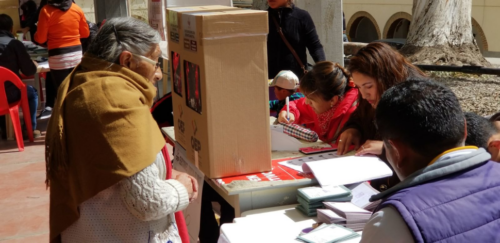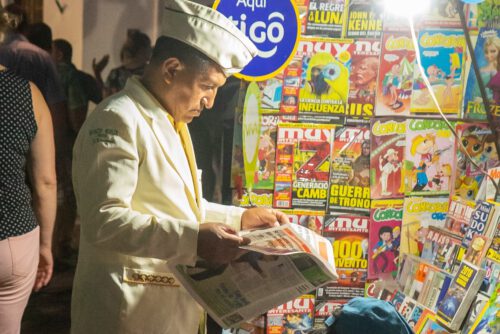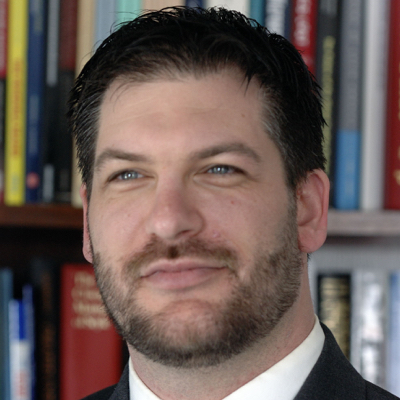David is an economist at CEPR. He has a PhD in computer science from North Carolina State University and an M.A. in economics from George Washington University.
David has extensive experience monitoring international election data and testing theories of fraud and institutional interference, including balloting in Bolivia (“Observing the Observers: The OAS In The 2019 Bolivian Elections” with Jake Johnston, March 2020), Ecuador, Haiti (“The Organization of American States in Haiti: Election Monitoring or Political Intervention?” October 2011), Mexico (“An Analysis of Mexico’s Recounted Ballots” with Mark Weisbrot, Luis Sandoval, and Carla Paredes-Drouet, August 2006), Pakistan, Peru, and Venezuela (“Black Swans, Conspiracy Theories, and the Quixotic Search for Fraud: A Look at Hausmann and Rigobon’s Analysis of Venezuela’s Referendum Vote” with Mark Weisbrot and Todd Tucker, September 2004).
David has written numerous policy papers and analyses on a variety of subjects including “Have US-Funded CARSI Programs Reduced Crime and Violence in Central America?” with Alex Main and Laura Jung; “Latin American Growth in the 21st Century: The ‘Commodities Boom’ That Wasn’t” with Mark Weisbrot, May 2014; “Pension Liabilities: Fear Tactics and Serious Policy” with Dean Baker, January 2012; “The Ryan Medicare Plan: Winners and Losers” with Dean Baker, April 2011; “Social Security and the Age of Retirement,” June 2010; “Poor Numbers: The Impact of Trade Liberalization on World Poverty,” with Mark Weisbrot and Dean Baker, November 2004; and “The Forty-Four Trillion Dollar Deficit Scare,” with Dean Baker, September 2003.
He is the architect of a number of online calculators, including CEPR’s Accurate Benefits Calculator that compares current-law Social Security benefits to the Bush Plan based on “Progressive Indexing” and the Housing Cost Calculator that compares the cost of owning a home relative to renting for a potential new homeowner. The Housing Cost Calculator gave homebuyers a sense of how the bubble in the housing market might have affected them.
Prior to joining CEPR, he worked as a research associate (postdoc) at the Department of Computer Science, North Carolina State University.
All from David Rosnick
Morales’s First-Round Victory Was Predictable — Not “Inexplicable”
If they find that the late-reporting polling stations showed elevated support for Morales, they are hard-pressed to say that the late reporting caused the elevated support as opposed to any other cause or causes for delay — benign or malicious — inducing

Some Observers — Including the OAS — Ignored Critical Biases in Bolivia’s Preliminary Count
The “shutdown” does not offer a true opportunity for a natural experiment because the “treatment” group is neither plausibly similar to the “control” nor known to be treated in any ordinary sense.

The Preliminary Count in Bolivia’s 2019 Election Contained Clear Biases
Votes were not counted at random and that the problem of counting nickels before dimes is real and must be accounted for when the count is incomplete

The Parable of Nickels Before Dimes: A Tale of Two Roommates
When counting votes in an election, the only thing that matters is the final count. So long as we count all the votes, the order in which we count is unimportant.

Nickels Before Dimes: The Blog Posts
This is the first in a series of blog posts addressing a report by Diego Escobari and Gary Hoover covering the 2019 presidential election in Bolivia.

Nickels Before Dimes: Misleading Design in Escobari and Hoover’s “Natural Experiment”
Escobari and Hoover’s approaches to fraud detection are faulty and their claims to have measured fraud in the 2019 Bolivian elections are not supported.

What Criticisms of Bolivia’s 2019 Elections Continue to Get Wrong
This paper reaffirms our previous conclusions that Morales’s first-round victory was predictable based on the data available at the time of the October 21, 2019 OAS statement.

The OAS Misused Its Own Data to Help Fabricate Its Accusation of Fraud Against Evo Morales
This was not an objective, scientific investigation into the election, but a way of defending an indefensible analysis cooked up in advance

The Ends Don’t Justify the Means
Yet Another Analysis Fails to Support the OAS’ Delegitimization of Bolivian Elections

Guilty Until Proven Innocent: The Diego Escobari Approach to Bolivia’s Elections
Guilty until proven innocent. That appears to be the electoral fraud approach favored by Walter D. Valdivia and Diego Escobari in their recent piece in Project Syndicate. It is also the exact approach the OAS had a responsibility to avoid in their audit

